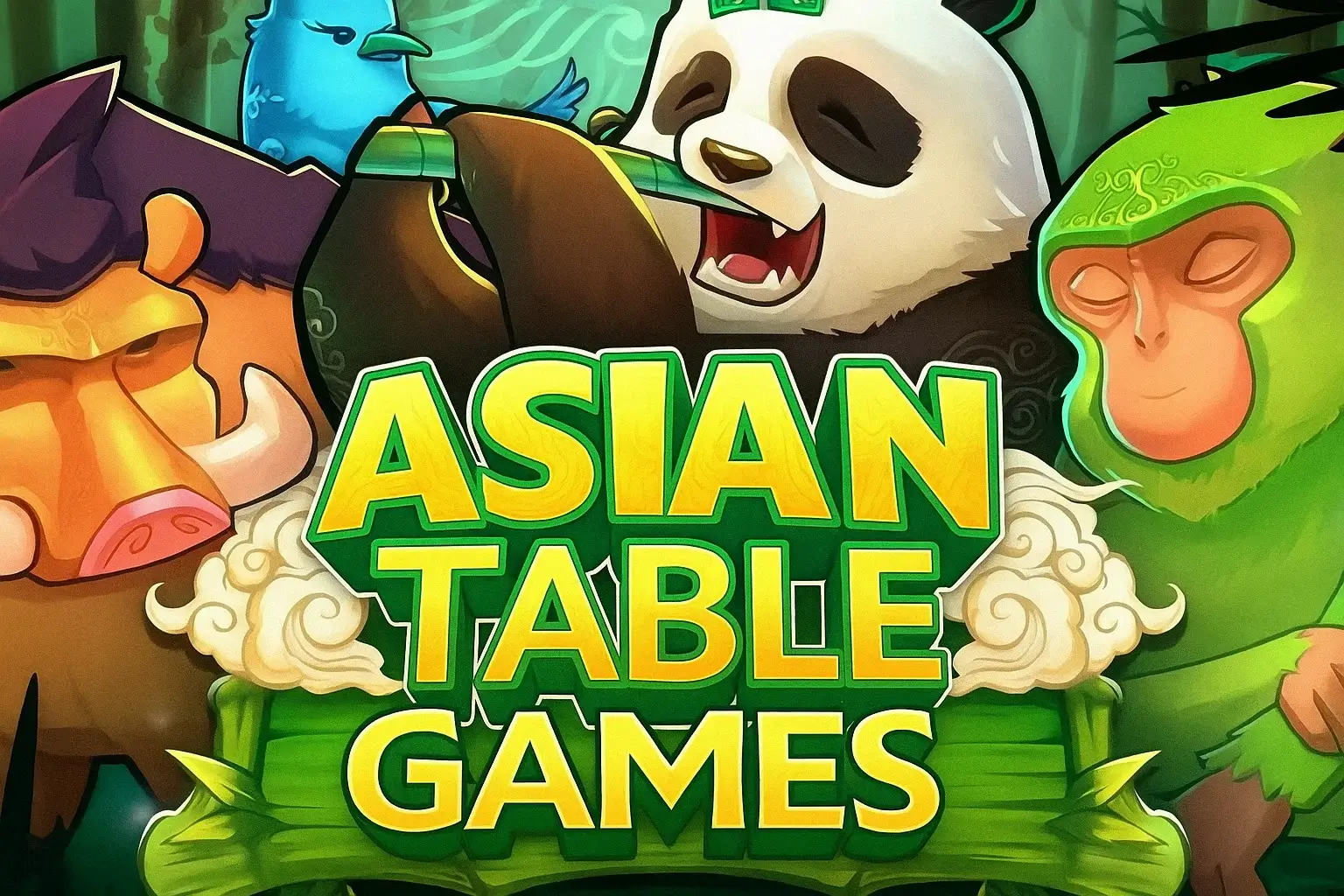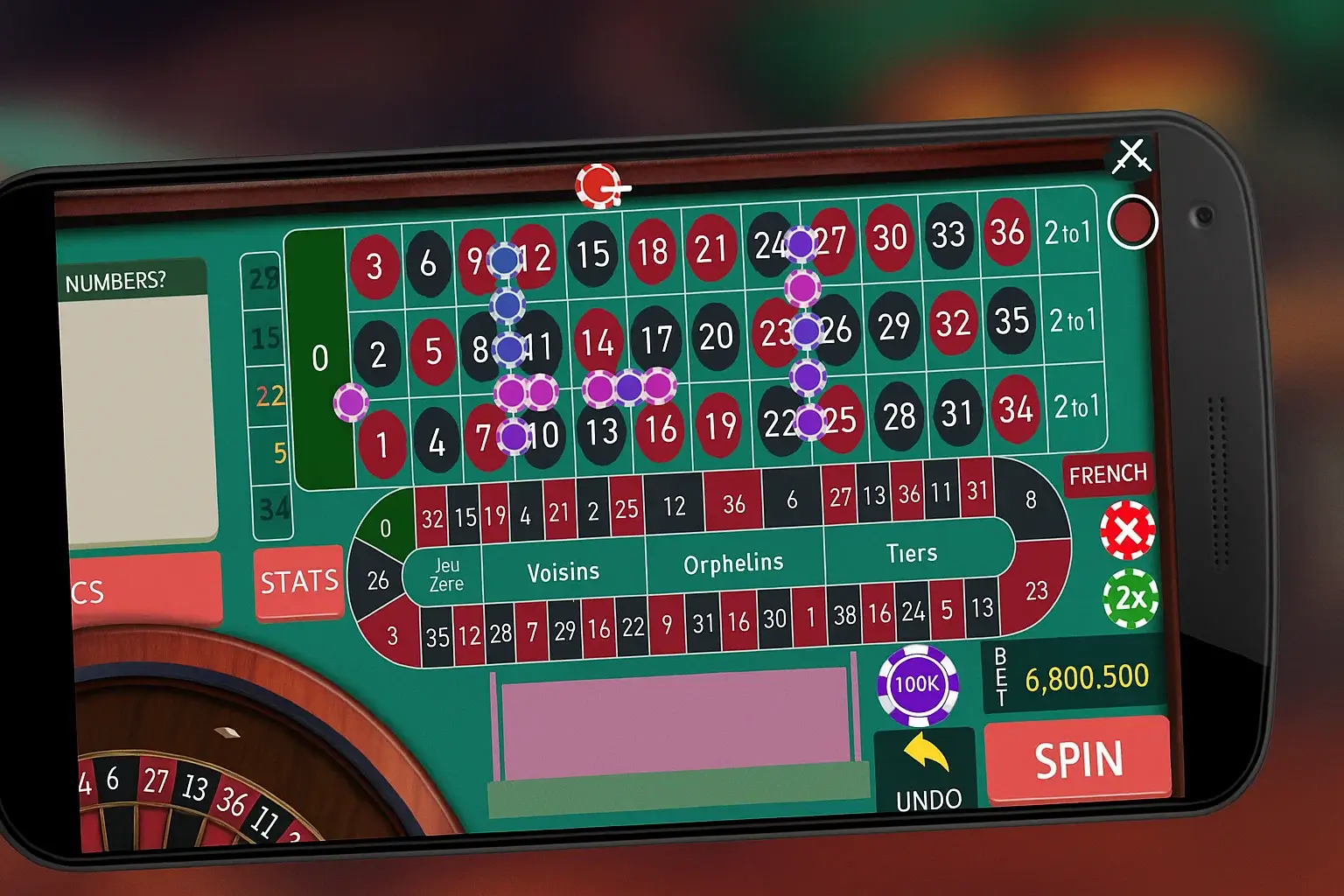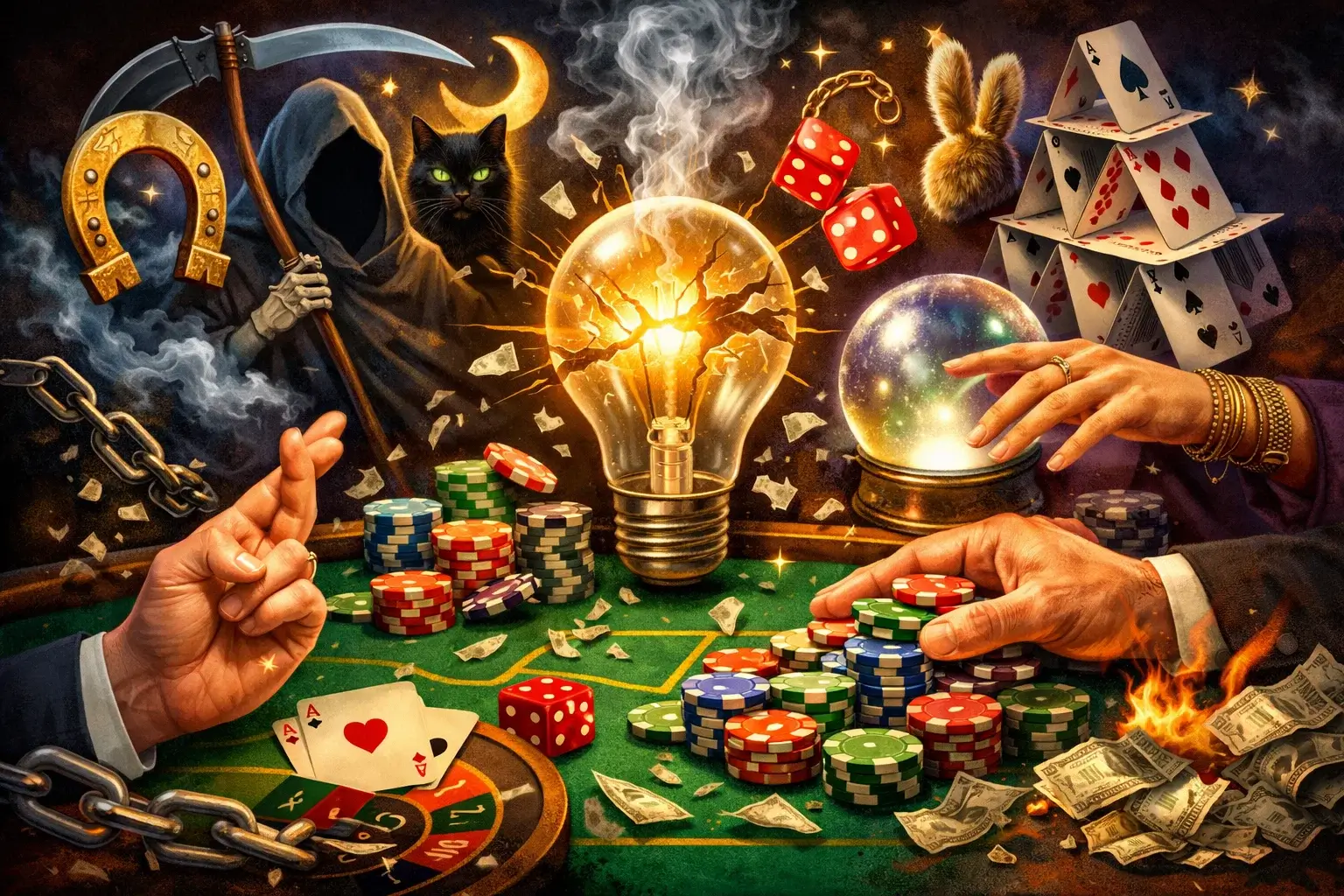You know how some people go to restaurants and always order the same thing? Chicken. Every time. Then one day someone drags them to try something different and they realize they’ve been missing out their entire life?
That’s what happens when you discover Asian table games.
For years, the Western gambling world was obsessed with blackjack, roulette, and baccarat. Fine games, don’t get me wrong. But there’s an entire universe of gambling traditions from Asia that are absolutely bonkers in the best way possible. Games that make regular casino games look like they were designed by accountants (which, let’s be honest, they kind of were).
Let me take you on a tour through some of the weirdest, most entertaining, and genuinely fun games that exist outside the Western casino bubble. Fair warning: once you try these, you might never look at a slot machine the same way again.
Sic Bo: The Ancient Chinese Game of Dice Madness
Let’s start with the heavyweight champion of Asian table games: Sic Bo. This game is basically what happens when someone says, “You know what’s fun? Dice. But like, way more dice. And way more chaos.”
The Basics: Three Dice, Infinite Possibilities
Sic Bo translates roughly to “big small” or “dice pair,” and the game is delightfully simple: three dice get rolled, you bet on various outcomes. That’s it. That’s the whole game.
But here’s where it gets wild: the number of possible betting combinations is absolutely insane. You’re not just betting “three sixes.” You can bet on specific combinations, ranges, triples, pairs, totals, individual dice values, whether the result is even or odd, big or small. There are literally like thirty different bet types.
For a blackjack player coming to Sic Bo, this is simultaneously refreshing and overwhelming. Blackjack is literally just “hit or stand.” Sic Bo is like stepping into a casino game designed by someone on amphetamines.
The Actual Bets: A Cheat Sheet
Here’s what makes Sic Bo both fun and potentially dangerous: the odds for each bet are wildly different.
You can bet “Big” (total is 11-17) or “Small” (total is 4-10). These pay 1:1 and have approximately 48% odds. Basically the safest bets, similar to red/black on roulette.
Then you get into the spicy stuff: specific totals. Want the dice to add up to exactly 10? That pays 6:1 but only happens about 12% of the time. Want triple threes? That pays 150:1 and happens about 0.5% of the time (basically never).
Pairs? 10:1. Three of a kind (but not what you bet)? 30:1. The betting structure is essentially a menu of different risk-reward profiles, and you can mix and match. This is what makes Sic Bo so addictive—there’s always a “just right” bet level for your risk tolerance.
The House Edge Reality Check
Here’s where casinos make their money: the house edge on different Sic Bo bets ranges from about 2.8% on the “Big/Small” bets (pretty reasonable) to absolutely astronomical on some of the specific triple bets (11%+).
Most recreational players instinctively gravitate toward the high-payout bets because, hey, wouldn’t it be cool to win 150 times your money? Yes, it would be cool. It would also happen literally never.
Smart Sic Bo players focus on the Big/Small bets and maybe some moderate-odds bets like specific doubles. This is probably the most important Sic Bo lesson: just because a bet exists doesn’t mean you should make it.
Why Casinos Absolutely Love Sic Bo
From a casino perspective, Sic Bo is a gift from gambling gods. The variety of bets means casual players scatter their money across different outcomes, making it harder for them to track the house edge. They think, “I’m playing smart by mixing bets,” when actually they’re just confusing themselves.
Plus, the psychological appeal of those massive payouts (150:1! 180:1!) keeps people engaged. Even losing regularly, people keep trying for the big score.
The Live Dealer Advantage
Sic Bo is genuinely better with a live dealer because you get the theater of it. The dealer vigorously shakes three dice, drops them, and everyone watches intently like it’s the final round of the World Series of Poker. When the dice settle and reveal the winning numbers, there’s this moment of collective tension release.
Playing against an RNG version just doesn’t have the same energy. It’s the difference between watching someone play chess and watching them think in silence. Theater matters.
Dragon Tiger: The Baccarat That Got Tired of Complexity
Dragon Tiger is what happens when someone looks at Baccarat and says, “Cool game, but what if we made it even simpler?”
And honestly? It’s genius.
The Concept: One Card Each, Maximum Simplicity
Instead of drawing multiple cards per hand like in Baccarat, Dragon Tiger deals exactly one card to the Dragon and one card to the Tiger. Highest card wins. That’s literally the entire game.
You bet on Dragon, Tiger, or sometimes Tie. The cards are compared. One of them is higher. You either won or you lost. Done. Thirty seconds later, you’re doing it again.
This is appealing to a specific type of gambler: people who want action fast and don’t want to think about it too hard. You don’t need to understand when cards get drawn, what constitutes a “natural,” any of that Baccarat complexity. Card A vs Card B. Winner wins.
The Odds: Shockingly Fair (Relatively Speaking)
Dragon and Tiger bets pay 1:1 (roughly), just like Baccarat’s Player/Banker bets. House edge hovers around 3-4% depending on exact rules.
Tie bets pay 8:1 and exist to give casual players a way to lose money faster (classic casino move).
The beauty of Dragon Tiger is that it’s straightforward enough that even a brand new gambler can understand the odds. One card beats the other card. The math is literally third-grade level.
Why It’s Weirdly Strategic Despite Being Simple
Wait, strategy in a game that’s literally “high card wins”? Sort of, yeah.
The interesting part is card counting strategy. If you know the deck composition (you always do in live dealer games—they show the shoe), you can theoretically predict future cards.
Of course, card counting is still basically impossible in a real casino (they shuffle constantly), but online? Some people get weirdly mathematical about predicting patterns. It’s probably nonsense, but the illusion of strategy makes people feel smarter about losing money.
Honestly, this is why Dragon Tiger is brilliant from a casino perspective: it’s simple enough to understand immediately, but complex enough in theory that people convince themselves there’s skill involved. That’s the sweet spot for casino engagement.
The Streaky Nature
Because Dragon Tiger is purely luck with no decisions, it creates hilarious streaks. Dragon wins 10 times in a row. People start piling money on Dragon like it’s destiny. Then Tiger wins 15 in a row.
This is spectacular for casinos because it creates FOMO (fear of missing out). Every time one side wins repeatedly, bettors panic that they’re betting the wrong side.
From a mathematical perspective, these streaks are random and meaningless. Psychologically? They drive people absolutely bonkers and make them bet irrationally.
Andar Bahar and Teen Patti: Indian Gambling Heritage
Now we’re getting into games that have been played in Indian households for literally centuries. These aren’t casino inventions—they’re actual traditional games that casinos adapted. That’s a different energy.
Andar Bahar: The Card Guessing Game That’s Weirdly Addictive
Andar Bahar (also called Katti) is essentially: a dealer shows a card, then deals cards to two sides (Andar = inside, Bahar = outside), and you bet which side the matching card appears on first.
So: dealer shows a 7. Then deals cards alternately to the Andar pile and Bahar pile. First time a 7 appears, someone wins.
It sounds simple, and it is, but there’s something hypnotic about watching the pile grow. Will it be in the Andar pile or Bahar? Nobody knows! Tension builds with each card!
The actual odds are roughly 50/50 (slightly varies based on which card appears), making it one of the fairest casino games available. House edge is lower than most games.
What’s interesting about Andar Bahar is that it originated in India and remained relatively regional until online casinos discovered it could attract a massive gambling market in India and across South Asia. Now it’s available everywhere.
Why Andar Bahar Feels Different
Unlike Western games designed by mathematicians to extract money efficiently, Andar Bahar has this cultural weight. People from India often have memories of family playing this. There’s heritage there.
Casinos use this. They’ll have incredibly beautiful live dealer setups with Indian dealers, traditional clothing, and cultural production values. They’re selling nostalgia as much as gambling.
Teen Patti: Poker’s Indian Cousin
Teen Patti is essentially Indian poker. Three cards dealt to each player, betting rounds, rankings similar to poker but streamlined. It’s played throughout India and Pakistan casually, and now exists as a casino game.
What makes Teen Patti interesting is that, unlike poker, there’s not actually much strategy in the casino version. You’re playing against the house (usually), not other players. You place your initial bet, receive three cards, and decide to continue or fold. The house has a 1-1.5% rake but otherwise it’s pretty fair.
The fun part: the rankings are slightly different from Western poker. A “Trail” (three of a kind) is the best, then a “Pure Sequence,” then a “Sequence,” then a “Color,” and so on. If you’re used to Western poker rankings, it takes a moment to retrain your brain.
The Cultural Significance
Here’s what’s important to understand: in India and South Asia, these games have cultural significance beyond just gambling. They’re played at celebrations, festivals, among families. They’re not viewed as “vice games” the way Western people sometimes view casino games.
Online casinos marketing these games to Asian audiences aren’t just offering games—they’re offering culturally relevant entertainment. The production quality reflects this. It’s not cynical; it’s smart business and cultural acknowledgment simultaneously.
Fan Tan: When Gambling Met Chinese Buttons
Fan Tan is perhaps the weirdest game on this list, and I mean that as a compliment.
The Bizarre Setup: Buttons, a Stick, and Existential Questions
Historically, Fan Tan involved a dealer taking a pile of buttons (or beads or stones), covering it with a cup, then using a stick to remove buttons four at a time until fewer than four remained. Bets were placed on which number would remain (1, 2, 3, or 4). That’s it.
Literally, the entire game is: “How many buttons are left over?”
That’s the game. That’s the whole thing.
In modern casinos, it’s been computerized (no actual buttons, sadly), but the concept remains: will the result be 1, 2, 3, or 4? Each pays 1:1 with roughly 25% odds each (modified by house edge).
Why This Game Is Actually Fascinating
On paper, Fan Tan sounds boring as hell. And yeah, objectively, it is. The game has literally zero strategy. You pick a number, that number either comes up or it doesn’t.
But here’s the thing: this game originated in China centuries ago and was actually played obsessively. People lost fortunes on this game. Why? Because the simplicity is somehow hypnotic.
There’s something about the ritual—removing buttons until four remain—that created obsession. Casinos figured this out and now offer it as another option in the “simple betting games” category.
The Modern Casino Version
Online casinos present Fan Tan with flashy graphics and animations. A virtual pile of items, removed four at a time, until the result is determined. Sometimes they add special bets (combinations, specific sequences) to make it more interesting.
Honestly though? Most people find it boring compared to Sic Bo or Dragon Tiger. It lacks the complexity of Sic Bo and the speed of Dragon Tiger. It’s kind of the middle child of Asian games—fine, but nobody’s excited about it.
Why Include It At All?
Casinos include Fan Tan because it’s traditional and because regional markets expect it. If you’re marketing to Chinese players, not including Fan Tan would be like a Western casino not including roulette. It’s just… expected.
Game Shows: Crazy Time, Monopoly, and the Hybridization of Gambling and Entertainment
Now we’re in weird territory. These aren’t traditional table games—they’re game show entertainment with gambling elements. They’re neither fully casino games nor fully game shows. They exist in this bizarre hybrid space.
Crazy Time: When Someone Said “What If Gambling Was a Game Show?”
Crazy Time is basically a wheel-spinning game combined with mini-games combined with a live game show environment. You have a massive spinning wheel, charismatic hosts, and prize wheels that spin to determine multipliers.
The base game is simple: you pick a number (1-8 or specific outcomes), and the wheel spins. The wheel lands on your number, you win at specific odds.
But then things get weird: if certain segments hit, you enter a bonus round with a separate wheel, different odds, and multiplier effects.
Here’s the genius part: it’s hosted by an absolutely energetic human being who’s basically a game show host. They’re interacting with the camera, reacting to outcomes, creating narrative around what’s happening. It’s not sterile. It’s entertainment-forward.
Why This Format is Genius (From a Casino Perspective)
Traditional casino games are designed to extract money quietly and efficiently. Crazy Time is designed to extract money while entertaining you so thoroughly that you don’t mind.
The live host creates parasocial relationships. People watch regularly and feel like they know the host. “Oh, that’s my guy Steve! I wonder what outfit Steve is wearing today!” Before you know it, you’ve tuned in twenty times and lost a thousand dollars.
The game shows aspects (wheels, mini-games, multipliers) create psychological variety. You’re not just betting and winning or losing. You’re experiencing multiple moments of tension, excitement, and resolution. More emotional engagement = more money wagered = more casino revenue.
Monopoly Live: Bringing Board Games to Gambling
Monopoly Live is exactly what it sounds like: Monopoly mechanics applied to a casino game. You have a board, tokens move around, you land on properties and win or lose money based on outcomes.
It’s completely bizarre and somehow brilliant. People know Monopoly, so there’s familiarity. But it’s gambling-ified, so there’s that risk element.
The production values are immaculate. Actual Monopoly board, live hosts, professional broadcasting setup. It feels legitimate despite being a slightly weird concept.
Dream Catcher, Lightning Roulette, and the Proliferation of Hybrid Games
Once casinos figured out that game show + gambling = engagement, they went absolutely wild. Dream Catcher is a spinning wheel with multipliers. Lightning Roulette is regular roulette but with random lightning bolts that add multipliers to specific numbers.
Each of these is a slight variation on a theme: traditional gambling game + theatricality + unpredictability = engagement.
The cynical take: these are games designed to maximize engagement time and psychological addiction rather than provide fair gambling. The optimistic take: these are legitimate entertainment products that combine gambling with quality production. Probably both are true.
The Production Value Factor
What separates these games from traditional casino games is the production. You have professional studios, lighting design, quality hosts, multiple camera angles. It feels like watching a real TV show, not just a casino game.
This production quality costs money, and casinos factor that into the house edge. These games typically have a slightly higher house edge (1-3%) than traditional games (0.5-2%), partially because of production costs but also because the increased engagement justifies higher margins.
Where to Find Exotic Games in Online Casinos
Okay, so you’re interested in trying these games. Where do you actually find them?
The Major Operators: Safest Bet
DraftKings, FanDuel, BetMGM, and similar major operators are adding these games, but they’re still somewhat limited. You’ll find Dragon Tiger and Sic Bo for sure. The game shows (Crazy Time, Monopoly) are increasingly available. But comprehensive selections? Harder to find at major US operators.
If you’re in regulated US markets, these games are available but not prioritized because the domestic market still primarily wants blackjack and roulette.
International Operators: Where the Real Selection Lives
If you’re playing internationally (legally, in your jurisdiction), operators like Bet365, 888casino, Unibet, and various others have comprehensive Asian game selections. You’ll find literally everything.
These operators exist in markets where Asian games are familiar. UK, Europe, and other regions have massive player bases interested in these games, so the operators cater to that.
Crypto Casinos: The Wild West of Game Selection
Some crypto casinos have absolutely bonkers game selections because they’re less constrained by regulatory concerns in certain jurisdictions. You want Teen Patti at 5 AM on a Wednesday? Some crypto casino probably has it.
Obviously with higher selection comes different risk profiles, so choose carefully.
Live Dealer Platforms: Your Best Bet for Premium Asian Games
If you want the full experience—live dealer, video streaming, the cultural production values—look for platforms that specifically focus on live dealer games. Evolution Gaming, Pragmatic Play Live, and Asia-specific platforms offer the best selection.
These typically have dedicated Asian game sections. Dragon Tiger, Sic Bo, Andar Bahar, Teen Patti are all commonly available through these platforms.
Mobile Apps vs. Browsers
Most casinos offer both, but Asian games sometimes work better through the browser (better streaming quality, more stable for international connections).
Test both. Sometimes the mobile app is optimized, sometimes it’s garbage.
Verifying Legitimacy
Before depositing real money, check:
- Licensing information (should be publicly listed)
- Player reviews on reputable forums (not Reddit—actual gambling forums)
- Payment processing (if they only accept cryptocurrency and refuse traditional payments, red flag)
- Response time on support (send them a test question)
- Game fairness certifications (should have testing from third parties like GLI or eCOGRA)
The Practical Guide to Actually Playing These Games
So you’ve found a casino with Asian games. Now what?
Start Small: The Smart Approach
Open with the simplest games: Dragon Tiger or Big/Small in Sic Bo. Understand the speed and flow before trying complex bets.
Don’t be the person who walks into a Sic Bo table (or virtual equivalent) and places money on triple combinations immediately. That’s a path to quick losses.
Set Limits Before You Start
This is important for every form of gambling but especially for these games because they’re so engaging and move so fast.
Decide: I’m playing with $50, losing that or more means I stop. I’m playing for 30 minutes, then I’m done. I’m betting $5 per hand, not more.
Write these down if necessary.
Understand the House Edge
Before playing, know the house edge for each bet:
- Sic Bo Big/Small: ~2.8%
- Dragon Tiger: ~3-4%
- Fan Tan: ~2-3%
- Andar Bahar: ~1-3% (varies by rules)
- Game Shows: ~2-3% typically
This helps you understand that you’re mathematically expected to lose over time. These games are entertainment, not income.
The Social Aspect
If you’re playing live dealer games, use the chat. Interact with the dealer and other players. This is part of the appeal—these games are more social than traditional casino games.
Just keep in mind that everyone in the chat is also losing money, so don’t feel like you need to keep up with anyone else’s bets.
Variance and Streaks
These games move fast, so you’ll experience variance rapidly. One minute you’re up $100, next you’re down $200. This is normal.
Don’t adjust your strategy based on short-term results. If you’ve decided to play Big/Small in Sic Bo because it has the lowest house edge, don’t switch to triple combinations because you’re losing. You’re just increasing the house edge against you.
When to Walk Away
This is where discipline becomes critical:
- If you’ve hit your loss limit, stop. Don’t try to “win it back.”
- If you’ve won a significant amount, consider cashing out and enjoying your profit
- If you’re playing emotionally (angry, upset, stressed), stop immediately
The games will still be there tomorrow. Your bankroll will also still exist if you leave now.
The Bigger Picture: Why These Games Matter
Here’s something worth reflecting on: Western casino players have been missing out on entire categories of gambling entertainment because of geographic accident.
Asian table games developed independently, refined over centuries, and represent genuine cultural gambling traditions. They’re not cynically designed profit extraction mechanisms (well, they are now that casinos run them, but historically they weren’t).
There’s something interesting about playing games with global pedigree. Sic Bo dates back centuries. Teen Patti and Andar Bahar are woven into Indian culture. These aren’t arbitrary games invented by mathematicians trying to maximize house edge (though casinos have modified them for that purpose).
The Diversity Angle
From a pure entertainment perspective, discovering these games expands your gambling horizons. If blackjack has become stale, if roulette feels boring, these games offer actual novelty.
The rules are different. The pace is different. The psychology is different. It’s refreshing.
The Speed Factor
Most of these games move faster than traditional Western games. Dragon Tiger, Sic Bo, Fan Tan—outcomes resolve in seconds. This creates a different type of engagement.
For some people, this faster pace is amazing. For others, it’s overwhelming. Know which camp you’re in.
The Honest Reality Check
Let me be completely straight: these games are still gambling. The house edge is still real. You will statistically lose money over time.
The fact that these games are exotic and culturally interesting doesn’t change the mathematical reality. Sic Bo has a house edge. Dragon Tiger has a house edge. These games aren’t better odds—they’re just different.
What they offer is variety and entertainment value. If you’re going to gamble (which, statistically, many people are), these games provide something different from the Western casino standard.
The Risk Is Real
The faster pace and relative simplicity of these games can actually make them dangerous. You can lose money faster because outcomes come more quickly and decisions are simpler (less deliberation time).
Set strict limits. Actually enforce them. Use casino responsible gambling tools. Consider time limits and deposit limits before you start playing.
The Addiction Potential
Game shows like Crazy Time are specifically designed to be engaging. If you find yourself unable to stop watching, taking “just one more spin,” that’s a warning sign.
These games leverage psychological engagement tactics. Recognize them. Resist them.
Final Thoughts
Asian table games represent a legitimate expansion of the gambling universe. They’re not better or worse than Western games—they’re just different, with different histories, different rules, and different vibes.
If you’re curious, explore them. Try Dragon Tiger for its simplicity. Try Sic Bo for its complexity. Try Andar Bahar for its cultural connection.
Just remember: every single one of these games has a house edge. The casino profits over time. You’re playing for entertainment, not income.
Play smart, set limits, understand the math, and enjoy the fact that we live in a world where you can experience gambling traditions from literally every continent without leaving your couch.
Now if you’ll excuse me, I need to decide between betting on Dragon or Tiger. Narrator: He bet on Dragon. Dragon lost.
🎲🐉🐯



